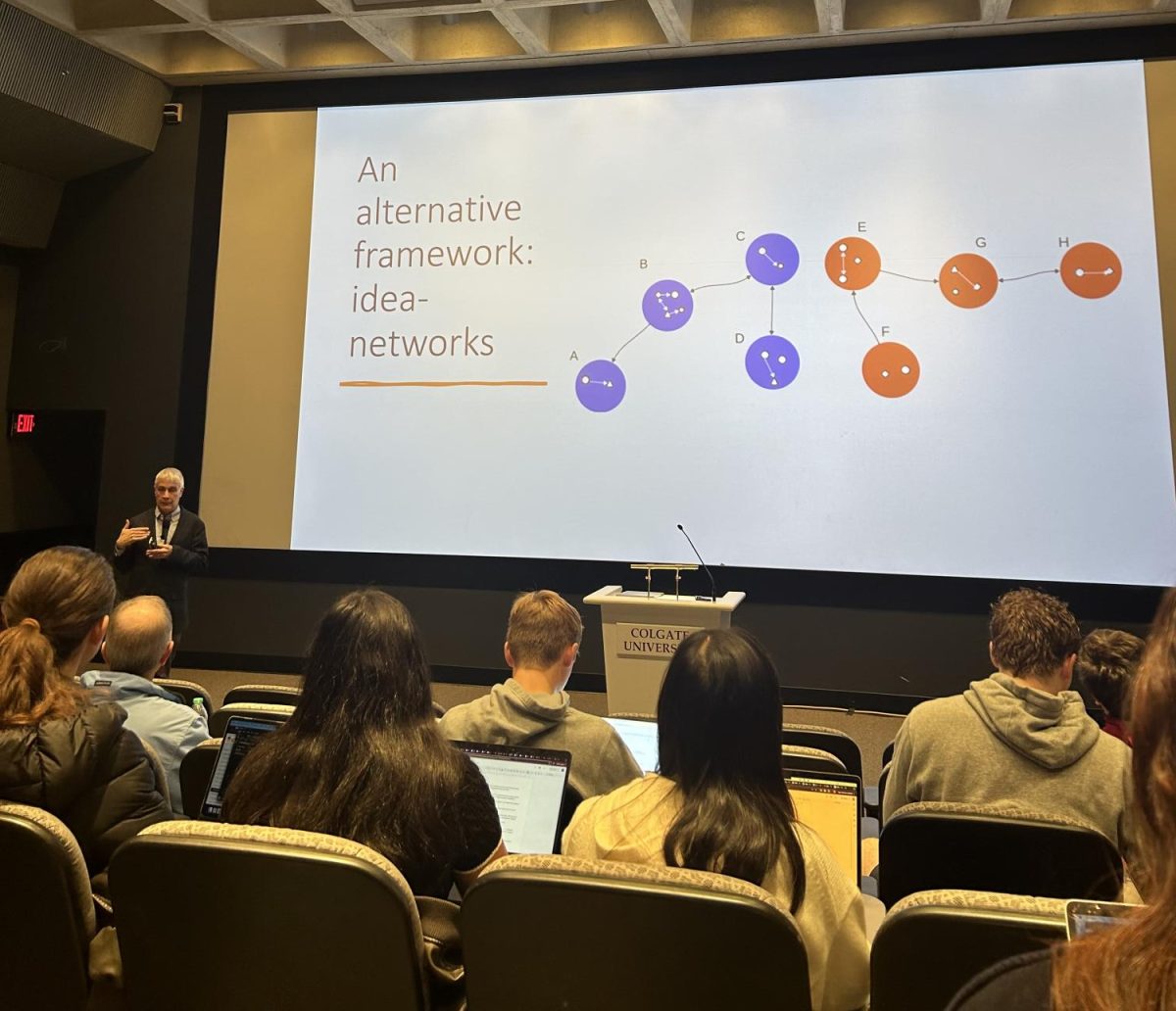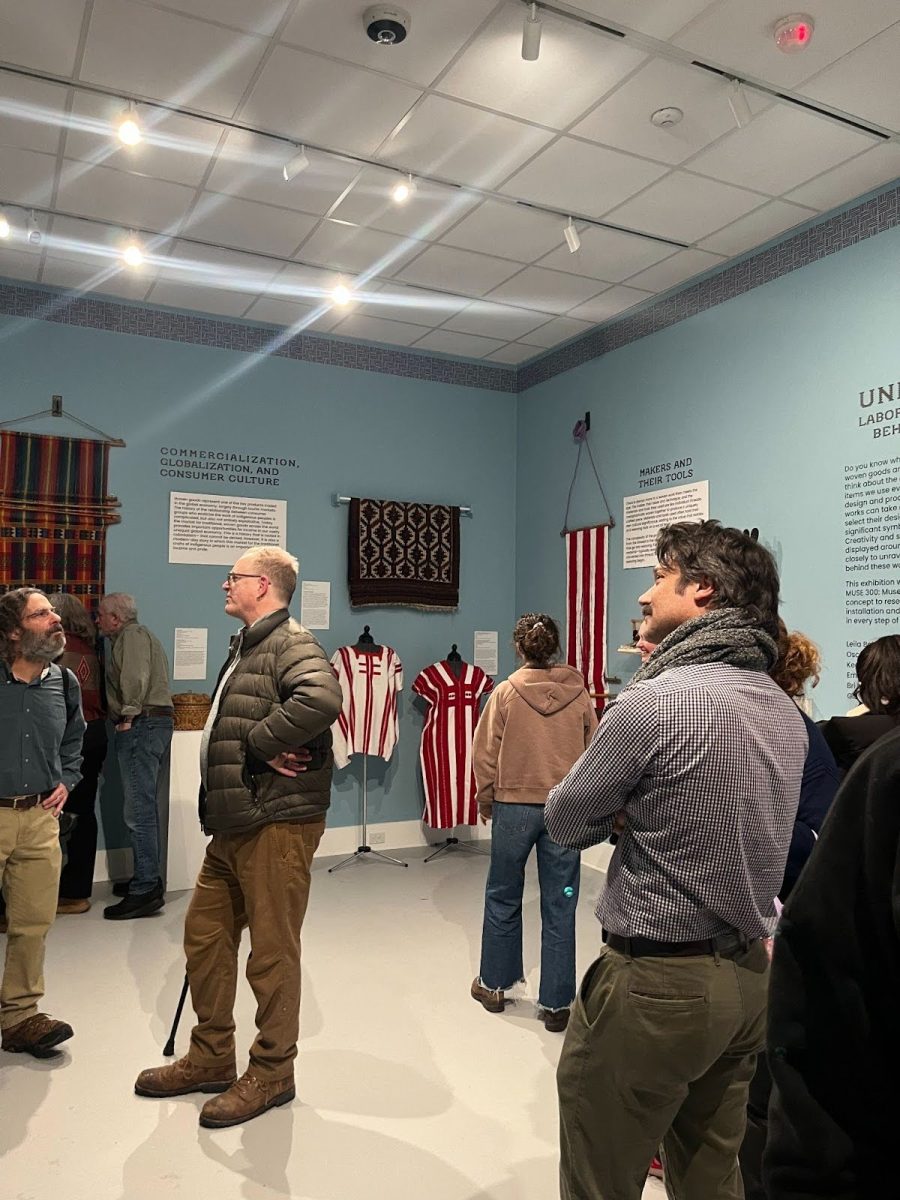The Office of the President and Colgate University’s political science department hosted Peter Levine Monday, Nov. 4 — the night before Election Day — as part of the ongoing Road to the White House series. Levine is an associate dean of academic affairs and the Lincoln Filene professor of citizenship & public affairs at Tufts University. He presented his past and current research on the notion of political space during his talk titled “People are Not Points in Space: Why the ‘Left vs. Right’ Spectrum Can’t Help Us Understand (or Solve) Political Disagreements.”
In his lecture, Levine described how people and their political beliefs tend to go beyond a clear cut positioning on the political spectrum. Additionally, Levine discussed his current research on adopting a new political framework that focuses on the interconnectedness of people’s political beliefs and values and how this new network can help society to have more productive political conversations.
“I’m proposing an alternative framework for thinking about ideas and the way we relate to each other. In this framework, each of us has a bunch of ideas that we believe at any given moment,” Levine said. “The beliefs are not just a list. They tend to be connected to each other. You believe one thing because you believe something else. You have a network of ideas in your head — the network is composed of ideas connected to other ideas.”
Levine continued his lecture by emphasizing the role of psychology in political values and conversations, specifically how people’s beliefs have the power to become contagious and prompt others to reevaluate their own beliefs. The uniqueness of different political thought structures can lead to either productive or ineffective political discourse.
“As we talk with other people, we become aware of our networks and what we believe and how they are connected,” Levine said. “For the first time in human history, lots of us live in big, anonymous settings where we don’t know all the other people, but we see that they say different things and we feel that they must be coming from a different place.”
Sophomore Clare Acuti was interested in Levine’s research in creating maps to visualize political thought networks and how they can serve as ways to discover someone’s important values.
“I thought it was interesting how [Levine] chose to view people’s differences and political opinions with not necessarily how much importance they put on a certain topic, but more so by creating a map of what the connections between their important topics are,” Acuti said.
Senior Clementina Aboagye reflected on the importance of providing a space for political discourse on campus.
“I think it was important that we had someone like Peter Levine who comes from an institution like Tufts University to present us [with the idea] that as much as we may disagree with each other, we still have complexities in how we think — that it’s important we search for gray areas because politics isn’t so black and white,” Aboagye said. “Those gray areas are important for us to not only converse about, but also to give each other space to speak — even when we don’t agree, because we can’t always agree — and we live in a world where people’s experiences and access to things determine what kind of ways in which they think — that deserves consideration.”



















